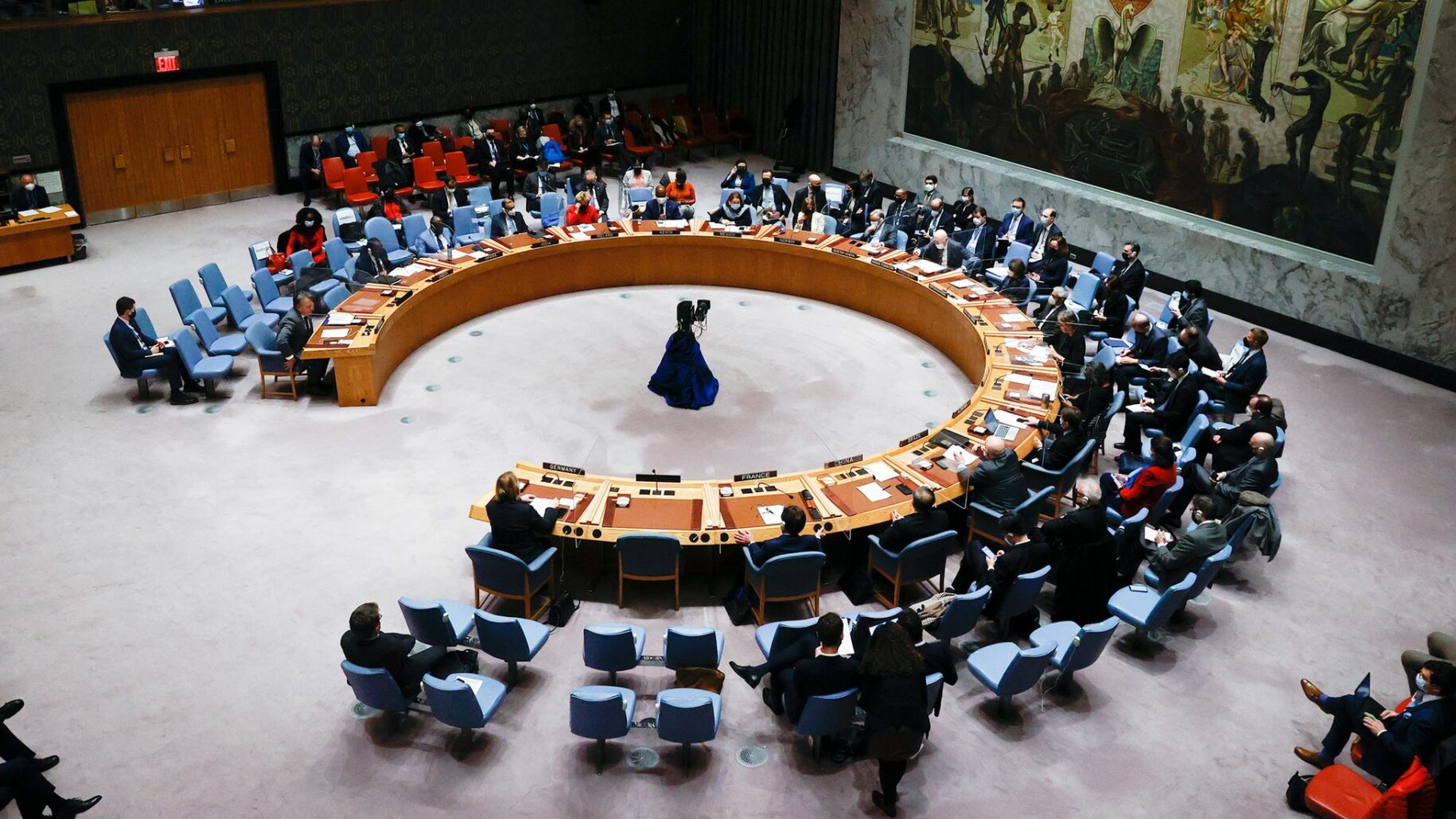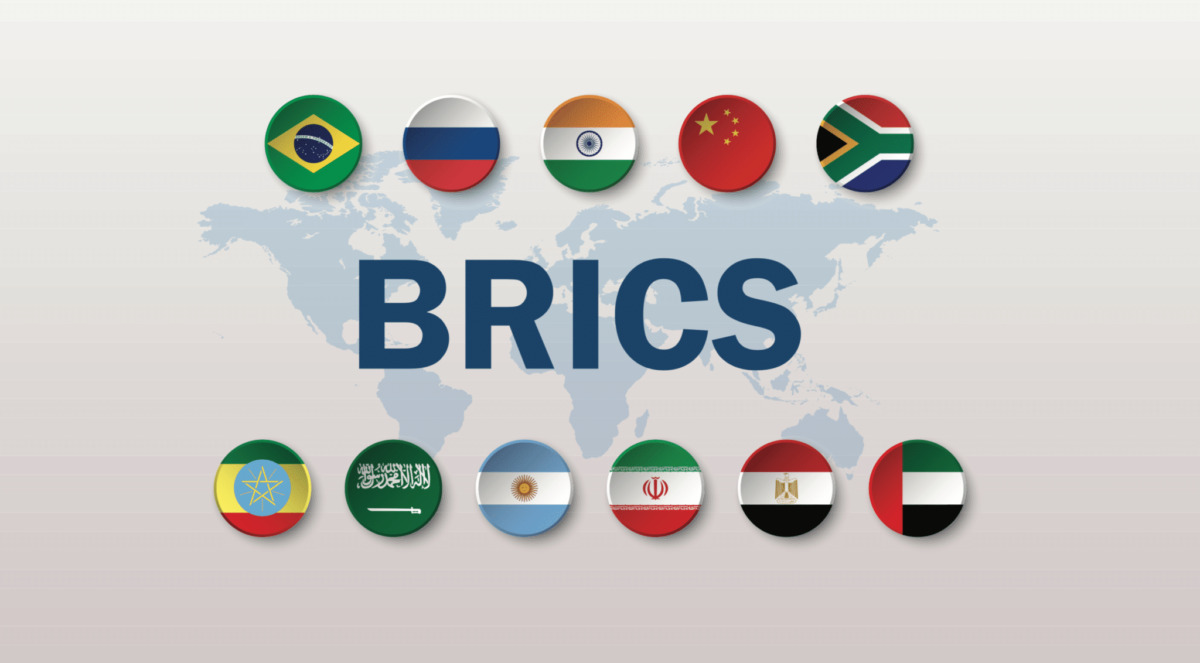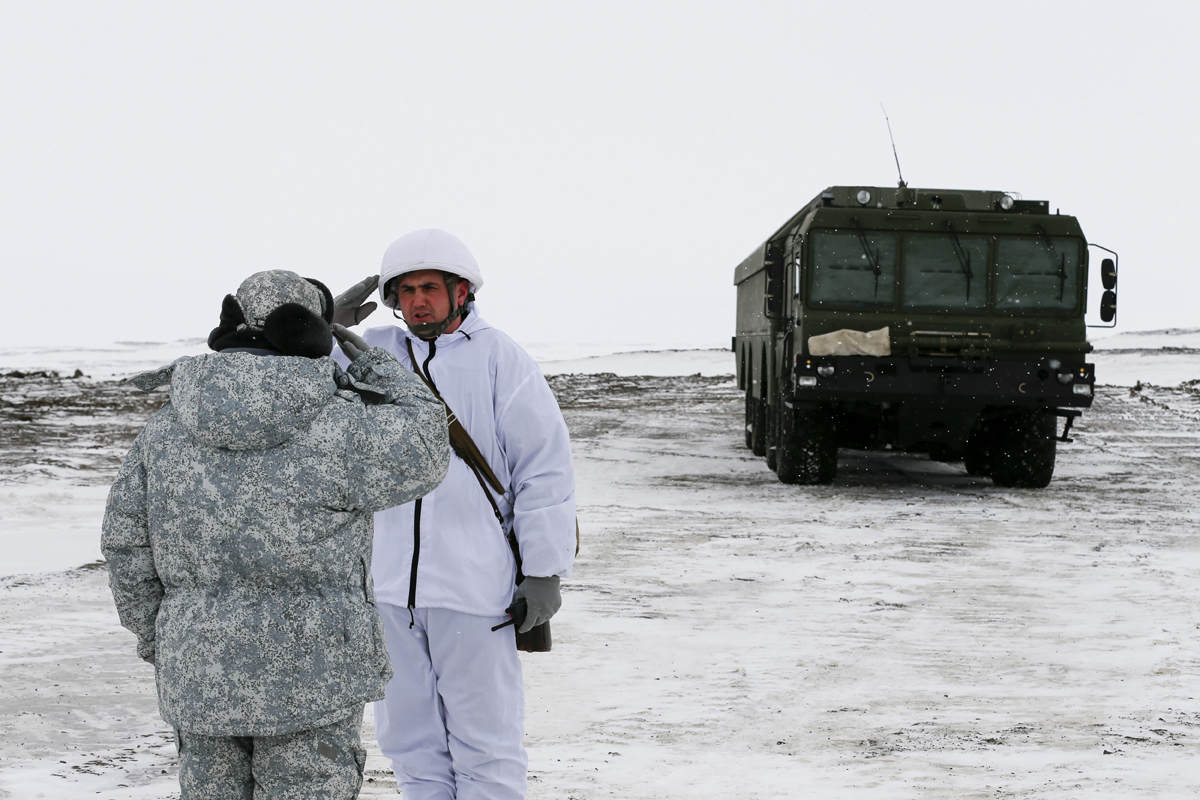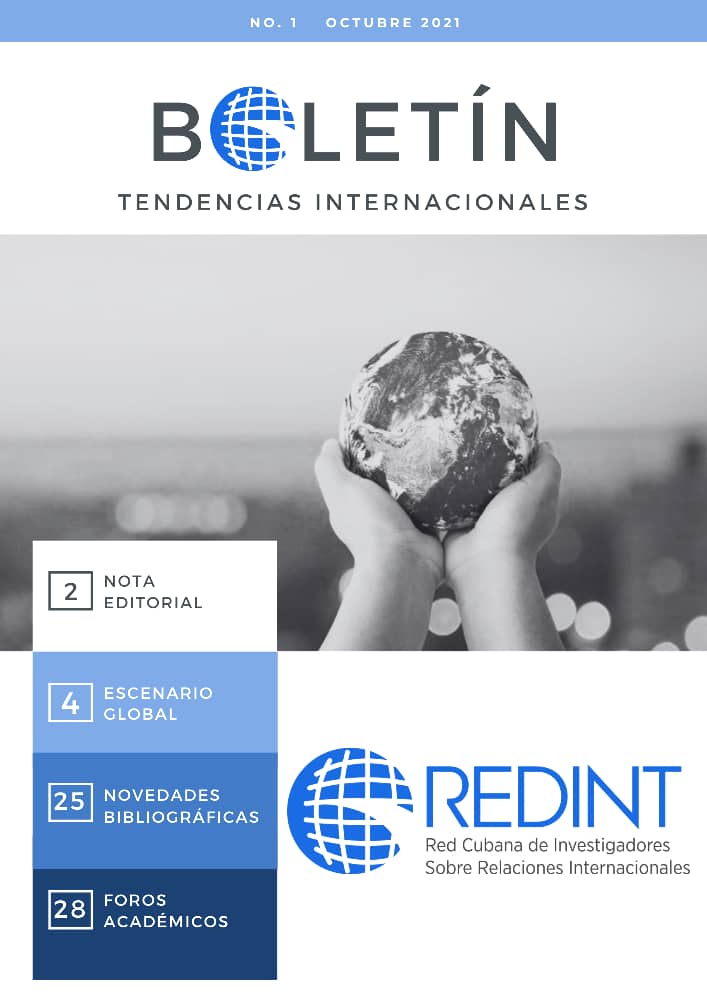International organizations and sanctions against Russia
Many international organisations reacted in one way or another to the sanctions war of the collective West against Russia
INSTITUTE FOR INTERNATIONAL POLITICAL AND ECONOMIC STRATEGIES
There are thousands of different international organisations in the world – global and regional, interstate and public, scientific, sports, cultural, religious, economic, etc. Among them, the first place in terms of authority and influence is the United Nations (UN), established in 1945, with 193 member states.
Many international organisations reacted in one way or another to the sanctions war of the collective West against Russia that began at the end of February this year. Including the UN. Some organisations simply made (and continue to make) statements expressing their attitude to the sanctions war, as well as Russia’s military operation in Ukraine (which prompted the West to impose sanctions). Other organisations make some decisions and carry out practical actions that can influence the course of events related to the sanctions war.
To be honest, I hoped that the UN, as the highest authority in the world of international organisations, would give a legal assessment of the sanctions. Any student of international law knows that only those sanctions imposed by UN member states against other UN member states that are approved by the UN Security Council are legitimate. There was no such approval.
Moreover, representatives of some states have been calling for tougher sanctions from the UN rostrum for almost a month and a half. Such calls undermine international law and the authority of the UN, which is already extremely low today. After the end of the Cold War and the collapse of the Soviet Union, the United States began to actively try to turn the UN into an obedient instrument of its policy. And the current unilateral sanctions imposed by the United States and its allies against Russia once again demonstrate that Washington is seeking to use the UN as another informal sanctions tool against Moscow.
Through its own people, Washington organised a hysterical anti-Russian campaign under the slogan: “Exclude Russia from the UN Security Council.” Indeed, Russia in the Security Council prevents the adoption of the very resolution that would legalise the current sanctions.
Washington, although acting as a rogue in the international arena, would like to get carte blanche from the UN for its robbery. And then, after all, who knows how events will develop? What if this sanctions war for Washington ends with a new Nuremberg tribunal? Otherwise, it would be an alibi, or at least a joint and several responsibility in the form of a UN Security Council resolution.
But there will be no such alibi for the reason that it is currently almost impossible to exclude Russia from the Security Council. To do this, it is necessary to change the UN Charter, and the majority of member states will definitely not support the amendments to the Charter that Washington needs. Washington, gritting its teeth, is looking for other ways to limit Russia’s influence as a permanent member of the UN Security Council.
Now on the agenda of Washington is the task of expelling Russia from the UN Human Rights Council (HRC). The United States intends to invite the UN General Assembly to vote in favour, hoping that the proposal will be supported by two-thirds of the votes (processing of representatives of member states on this issue has been underway since the end of February). If Washington’s plan for the HRC is implemented, then painstaking and strenuous preparations will begin on the issue of excluding Russia from the Security Council.
Experts do not rule out that Washington can achieve its goal: threatening some, and buying and bribing others. What Washington doesn’t understand is that if it succeeds in doing so, then the UN’s existence will lose all meaning. It fanatically cuts down the branch on which it sits. This is very similar to what Washington did when it froze Russia’s foreign exchange reserves at the end of February. With this sanction, it cut down the dollar branch on which it had been sitting since 1944 (when the Bretton Woods Conference decided to create a gold-dollar standard). The dollar branch hasn’t broken off yet, but it’s already cracking.
A curious detail. President of UkraineVladimir Zelensky is actively used to voice the idea of excluding Russia from the UN Security Council. This clown really believed that it could be done. He was sure that this would happen in March. But it didn’t happen. And Zelensky said angrily: then the Security Council is not needed either, if it cannot really condemn the “aggressor” and support Ukraine. They say that there is no Security Council, and there is no Russia with its right of veto. Zelensky’s idea can be continued: there is no Security Council, there is no UN.
Such “brilliant” ideas are born not only in Zelensky’s head, but also in the minds of American officials. And even the US president himself Joe Biden. However, Biden’s idea concerns the issue of Russia’s membership not in the UN Security Council, but in the G20. On March 25, during his visit to Europe, the American president issued an ultimatum to the G20: the United States will participate in the annual summit of G20 leaders in Indonesia (Bali) in November of this year only if Russia is not present at the meeting. In fact, this is a demand to exclude Russia from the G20.
The US Treasury Secretary Janet Yellen immediately agreed with the American president. “President Biden has made it clear, and I agree with him, that there can be no business as usual for Russia in any financial institution. He asked to exclude Russia from the G20. And I made it clear to my colleagues in Indonesia that we will not participate in a number of meetings if Russia is present,” the lady said at a hearing in the House Committee of Representatives.
Joe Biden also agreed with the Prime Minister of Canada Justin Trudeau. He said that he considers it inappropriate for Russia to participate in the G20 after its attack on Ukraine.
By the way, Warsaw insists that the idea of excluding Russia from the G20 was born not in the head of Joe Biden, but in the heads of Polish officials. On March 22, the Polish leadership suggested that the US administration consider the possibility of excluding Russia from the G20 due to the situation around Ukraine, the Polish Minister of Development and Technology Piotr Nowak said. Earlier, Polish Foreign Minister Zbigniew Rau said that the republic can replace Russia in the G20. Such ideas can be classified as political hallucinations.
China and a number of other G20 countries have already expressed their opposition to Washington’s demand for the G20 summit in Indonesia. It is noteworthy that the official representative of the UN Secretary-General Stephane Dujarric, commenting on the calls to exclude the Russian Federation from the G20, said that the decision on whether or not to exclude Russia from the G20 is the responsibility of the G20 itself.
It can be expected that if the head of the United States is not in Bali, then the heads of Canada, Australia, Great Britain, Germany, France, Italy, and Japan will probably also refrain from traveling to Indonesia. It is possible that the “Big Twenty” this year will order a long life. The United States and its closest allies will be locked in their “seven” (G7).
And other major G20 members (China, Russia, India, Brazil, South Africa) will develop and deepen their cooperation on their usual “BRICS” platform. However, it is possible that the BRICS membership may be expanded at the expense of such G20 members as Argentina, Mexico, Saudi Arabia, and Turkey. It would be nice to invite Iran, Belarus, Kazakhstan and all others who are tired of the American dictate.
In their asset of the sanctions war with Russia, “unfriendly states” can write down the exclusion of our country from a number of organisations in which Russia’s stay brought it more harm than good. Thus, the World Economic Forum (WEF) suspended work with Russia and canceled the participation of Russians in the forum in Davos. “We do not interact with any person who has been sanctioned, and we have frozen all relations with the Russian side,” WEF spokesperson Amanda Russo told Politico.
Last autumn, a Memorandum was signed between the WEF and the government of the Russian Federation on the creation of the Centre for the Fourth Industrial Revolution under the government of the Russian Federation on the basis of the “Digital Economy” autonomous non-profit organisation. This cooperation, according to a number of Russian experts, was dangerous for us from the point of view of Russia’s national security. Knowledgeable people breathed a sigh of relief when they heard about the boycott that the WEF announced to us. The memorandum mentioned above also became an insignificant document.
The United States is pushing various international organisations to first denounce and then exclude Russia. And even if these exceptions do not make Russia hot or cold, there is a lot of noise to be made around them. One of these noisy actions was organised around Russia’s membership in the Council of Europe and PACE (Parliamentary Assembly of the Council of Europe). On February 25, it was temporarily suspended.
Later, Russia announced that it was voluntarily leaving PACE. On March 15, Russia was officially expelled from the Council of Europe. In addition, the issue of excluding Russia from the Venice Commission (an advisory body on constitutional law under the Council of Europe) was raised.
Here is another example of the anti-Russian noise effect created around an international organisation. We are talking about the European Parliament. Russian and Belarusian diplomats have been banned from entering the European Parliament building since March 16. The head of the European Parliament Roberta Metsola wrote about this on Twitter: “As of today, diplomatic and civil servants of Russia and Belarus are banned from entering the premises of the European Parliament. There is no place in the house of Democracy for those who seek to destroy democratic order.”
In the world media, this news was presented in such a way that readers, viewers and listeners might think that Russia and Belarus were excluded from this “house of Democracy”. But it was never registered in it. All such bans and exceptions do not harm Russia in any way, but rather help it to get rid of the corrupting influence of the ideology of “European democracy” and “economic liberalism”.
There is also a lot of noise about Russia’s membership in the World Trade Organisation (WTO). Immediately after February 24, there were calls to exclude Russia from the WTO. At the moment, the WTO unites 164 states. To exclude Russia, it’s necessary to hold two rounds of voting. In favour of such a decision, one must get two-thirds of the votes in the first round, and three-quarters in the second round. This is almost impossible.
Some countries of the collective West as WTO members, without waiting for a decision on exclusion, began to take measures of a clearly sanctioned nature. We are talking about depriving Russia of the most-favoured-nation (MFN) trade regime. Canada was the first to do so. It was followed by Japan.
On March 15, the WTO received from 14 WTO members (the United States, the United Kingdom, the European Union, Moldova, Canada, Norway, the Republic of Korea, Japan, Albania, Australia, Iceland, New Zealand, North Macedonia and Montenegro) a statement of intent to deprive Russia of the most-favoured-nation trade regime. On March 17, the US House of Representatives supported a bill to deprive the Russian Federation of the status of a most-favoured-nation country.
Now the bill is in the upper house of the US Congress. By such unilateral actions, Canada, Japan and the United States actually put themselves in the position of gross violators of WTO rules, as if they had excluded themselves from this organisation. They also deal a blow to the WTO, which can be fatal for the entire organisation.
The West pushes Russia out of the WTO if not by washing it, then by rolling it. And it is supposed to say “thank you” for this. De facto, Russia is already outside the organisation’s doors. Russia now has a free hand, and it can determine its foreign trade policy without regard to the WTO and the organisation’s “key shareholders” (primarily the United States), based on its national interests.
It is only necessary to complete some formalities in order to formalise a de jure exit from the WTO. And the parliamentary faction “A Just Russia – For Truth” took this initiative. On March 21, it submitted to the State Duma a bill on Russia’s withdrawal from the WTO. The initiative is designed to protect the “national interests of the country”, as well as to become “self-defence” in response to the “sanctions pressure” of the West.
Head of the “A Just Russia – For Truth” faction Sergey Mironov commented on the legislative initiative as follows: “We are reaping the consequences of WTO membership now that Russia has been massively cut off from Western goods and technologies. Some people think that the WTO has been a boon for Russia, but I do not share this position. This organisation has caused a lot of damage to the Russian economy, so in the face of sanctions pressure, our country should immediately withdraw from the WTO.”
Sergey Mironov was supported by the Vice Speaker of the State Duma Petr Tolstoy. On March 24, he said that WTO membership does not bring any benefits due to the US’ position. “The United States has entered a line in the WTO that allows not to fulfil any WTO obligations at all in emergency situations that threaten the security of the United States,” the Vice Speaker noted. He also called the decision to join the WTO itself “idiotic” (this happened almost ten years ago, in August 2012).
Special attention should be paid to the proposals of our “partners” on Russia’s continued membership in international financial organisations (IFOs) – the International Monetary Fund (IMF), the World Bank (WB) and the European Bank for Reconstruction and Development (EBRD). There were some hotheads among Western politicians who demanded the exclusion of Russia from all these institutions.
They were helped in this by Kiev, which appealed to the West to raise the issue of expelling Russia from these organisations. Thus, on March 22, a member of the EBRD Board of Directors from Ukraine Artem Shevalyov called on the bank’s management to exclude Russia from its membership. Earlier (March 6) Prime Minister of Ukraine Denis Shmygal announced that Ukraine has called on its allies to suspend the membership of Russia and Belarus in the International Monetary Fund and the World Bank.
In practice, it is difficult or even impossible to do this, since the decision-making procedures provided for involve voting by all members of organisations. And it is almost impossible to collect the required number of votes for exclusion. It may be a little easier to do this in the EBRD, where the percentage of Washington’s vassal countries among the organisation’s members is higher than in the IMF and WB.
Russia’s exclusion from the International Monetary Fund (IMF) is not possible, the US Treasury Secretary Janet Yellen admitted at a hearing in the US Congress. She could only instruct US representatives at the World Bank and the IMF to oppose “the provision of financial assistance to the Russian Federation and Belarus from the relevant institution, except to meet the basic needs of the civilian population.” As for Russia, it is not hot or cold from this instruction of the American minister, since Moscow has not applied for loans to either the IMF or the World Bank for a long time.
So, Washington cannot raise the issue of excluding or even suspending the membership of the Russian Federation in IFOs. But it is trying to raise the question of limiting the powers of the Russian Federation. Managing Director of the IMF Kristalina Georgieva stressed that the leadership does not discuss the issue of suspending Russia’s membership in the organisation.
The country can be excluded only on the basis of violation of economic obligations in accordance with the IMF charter, and Russia fulfils all its obligations, Georgieva explained. For reference, Russia took loans from the Fund only in the last century. Since 2000, Moscow has never asked the Fund for help. And in January 2005, it paid off all the debt and has long been a creditor of the IMF.
For the time being, the IMF decided to take such a demonstrative step as depriving Russia’s representative Aleksey Mozhin of the honorary title of doyen of the Fund’s Board of Directors. Such a title is given to that member of the board of directors who has the longest tenure on the board; Mozhin has been on the board of directors for more than a quarter of a century, since 1996. The decision was pushed through by the delegations of the US, Great Britain and Canada.
However, it seems that our “partners” have found a way to pinch Russia more painfully as an IMF member. Russia’s accounts with the Fund contain a specific currency called “special drawing rights”, (SDRs). This is money with a limited range of functions that the Fund itself issues from time to time. Their value is determined daily based on the market exchange rate of the main currencies — the US dollar, euro, Chinese yuan, Japanese yen and pound sterling (which make up the so-called SDRs basket).
The first issue of SDRs was carried out in 1969. The last and unprecedented large one is on August 23, 2021 (in the amount equivalent to $650 billion). Currently, a total of 660.7 billion in SDRs (approximately $943 billion) has been distributed. After last year’s issue of SDRs, 12.3 billion units of this currency were transferred to the Russian account (at that time this corresponded to $17.5 billion). In total, the Russian Federation’s account accumulated SDRs in the amount equivalent to about $24 billion. The share of SDRs in Russia’s gold and foreign exchange reserves in February (on the eve of freezing a significant part of them) amounted to 3.8%.
SDRs can only be used by member countries of the Fund in the following way: one country can exchange SDRs for ordinary reserve currencies from other countries. And this unconditional right to convert SDRs into other currencies was called into question by Washington.
On March 17, the Financial Services Committee of the US House of Representatives approved a bill that prohibits the US Treasury Secretary from providing dollars to Russia and Belarus in exchange for the funds of the International Monetary Fund (SDRs) at their disposal. In addition, the bill obliges the head of the US financial department to consult with other countries so that they “similarly refuse to convert” the SDRs of Russia and Belarus into hard currency.
I don’t know how effective the US Treasury Secretary’s work will be in persuading other countries to boycott Russia in this way. The worst-case scenario: all our SDRs will be dead weight on the Russian account in the Fund. But let me note that in the three decades of our membership in the Fund, we have never tried to convert SDRs to other currencies. We did without SDRs and now we will do without it too.
But it should be noted that such an initiative by Washington damages the IMF, reduces confidence in the Fund and its SDR scurrency (previously it was considered that it has 100% immunity from any unilateral sanctions).
It is becoming quite obvious that we should not be passive observers of how the collective West is trying to limit the rights and powers of Russia in IFOs. If we sum up the results of our stay in the IMF, WB and EBRD, they should be marked with a minus sign.
The same Fund (in relation to which Russia is a net lender) sends its “recommendations” to Moscow every year to “improve” the monetary, economic and social policy of the state. And all of them are in the spirit of the “Washington Consensus”. The most scandalous recommendation of the Fund in the last few years was its proposal to reform the pension system of the Russian Federation.
The conclusion that we need to leave these organisations is more than obvious. Thank God, no sanctions can deprive us of this right. Let us refer, for example, to the document “Articles of Agreements of the International Monetary Fund” (a set of various regulatory documents, a kind of “code” of the IMF).
There is article XXVI, section 1: “Right of members to withdraw”: “Any member may withdraw from the Fund at any time by transmitting a notice in writing to the Fund at its principal office. Withdrawal shall become effective on the date such notice is received.”
The idea of leaving Russia in the State Duma is actively promoted by a well-known economist and deputy chairman of the State Duma Committee on Economic Policy Mikhail Delyagin. He is sure that Russia does not need the International Monetary Fund at all and it is even harmful. “We have already paid off all external debts, and we got rid of the dependence on their credit money in the early noughties. Although the IMF still retains an ideological and even some religious influence on Russian liberal officials. And we need to get rid of this,” M. Delyagin said in an interview with the Parliamentary Newspaper on March 3.
My review does not cover all the important organisations in which Russia’s membership is called into question either by countries on the list of “unfriendly states” (i.e., those who have imposed sanctions against us), or by Russia itself. Among Russia’s initiatives for voluntary withdrawal, we can mention the proposal of State Duma Deputy Speaker Pyotr Tolstoy. On March 24, he stated: “We have only to withdraw from the WTO, the WHO and UNESCO.”
A few words about the World Health Organisation (WHO). The campaign for Russia’s withdrawal from this organisation was launched in our country even before the current sanctions war began. Thus, in November last year, the interregional public organisation “For the Rights of the Family” collected signatures of more than 109,000 people under a petition for Russia’s withdrawal from the WHO. Copies of the document were sent to Putin, the State Duma, the Federation Council, the leadership of executive authorities, and individual politicians.
In the course of the so-called “fight against the COVID-19 pandemic”, it became clear to many that the WHO is only a cover and tool for the supranational elite to interfere in the internal affairs of sovereign states and implement its “Great Reset” plan. Under the banner of the latter, there is a plan to seize power in the world by a narrow group of “chosen ones” and establish a new world order. However, the current sanctions war against Russia is a continuation of the implementation of the same “Great Reset” plan.
Source: https://russtrat.ru/en/reports_/18-april-2022-0111-9966





Déjanos tu comentario